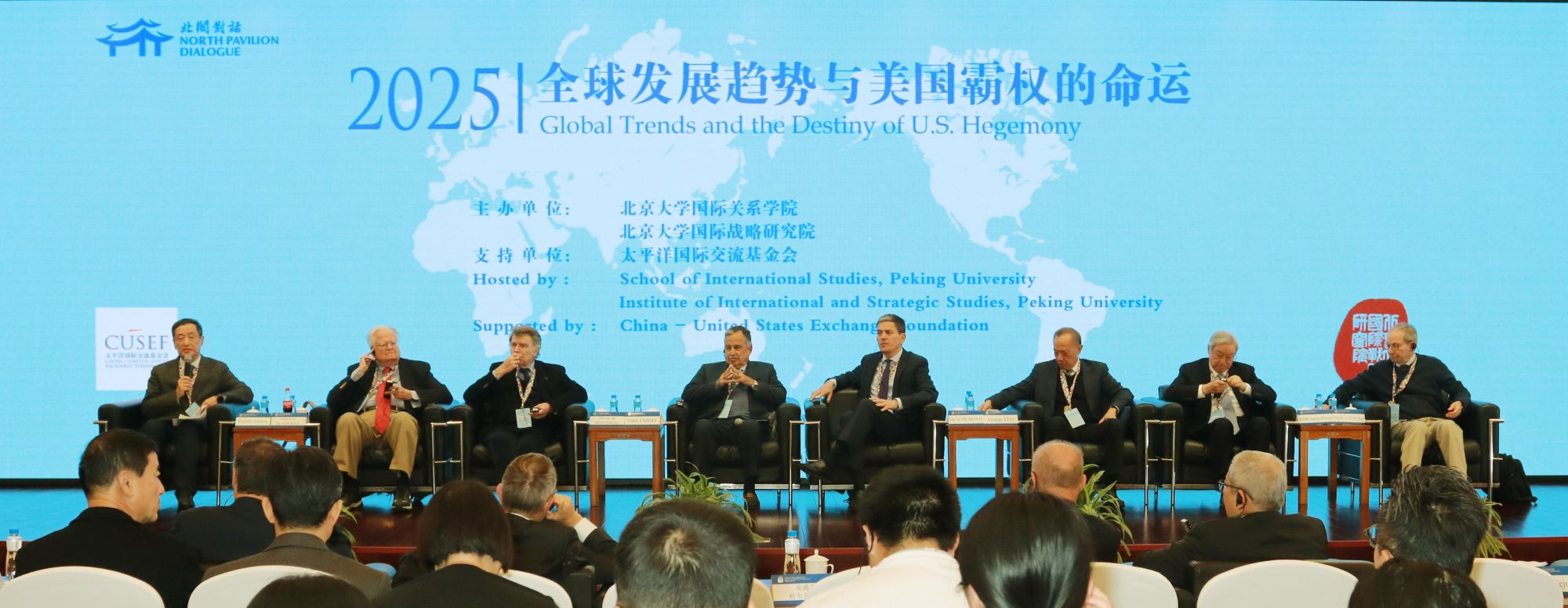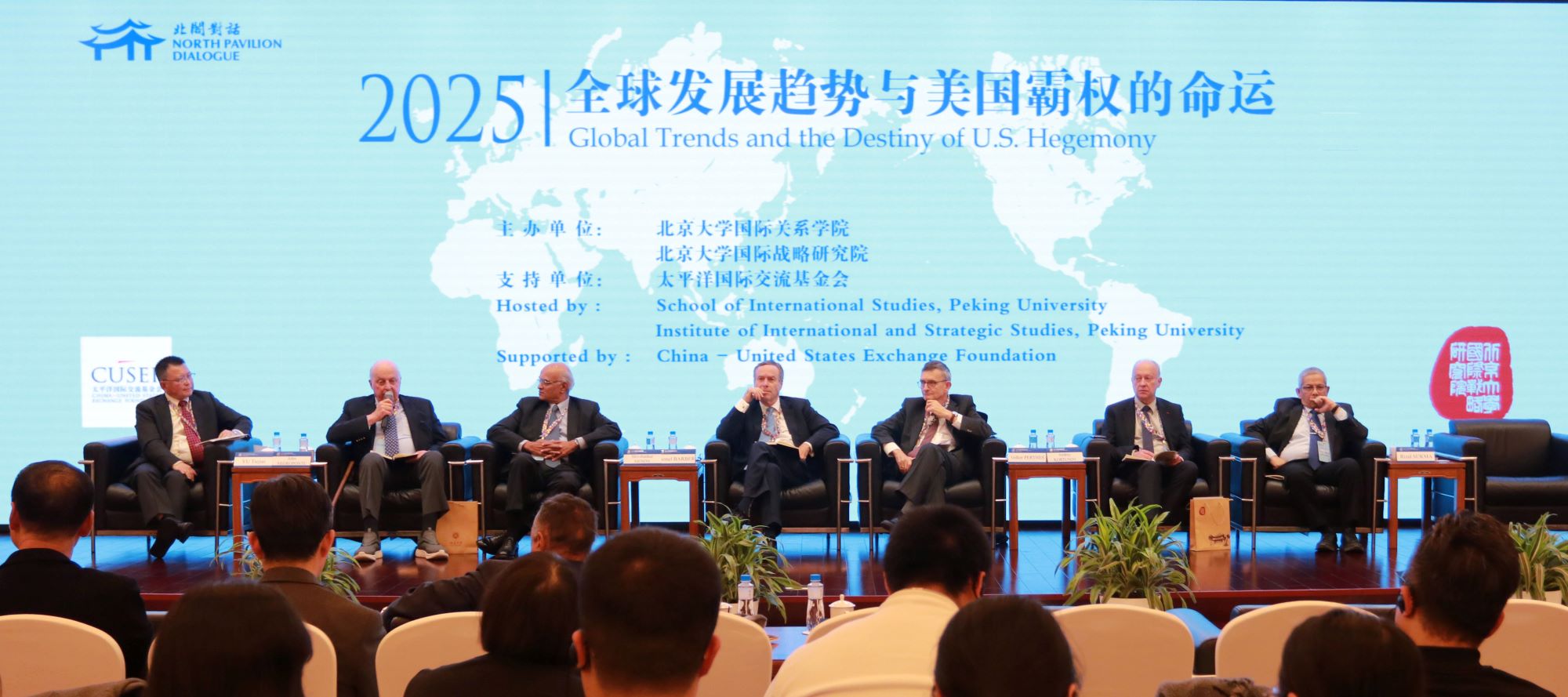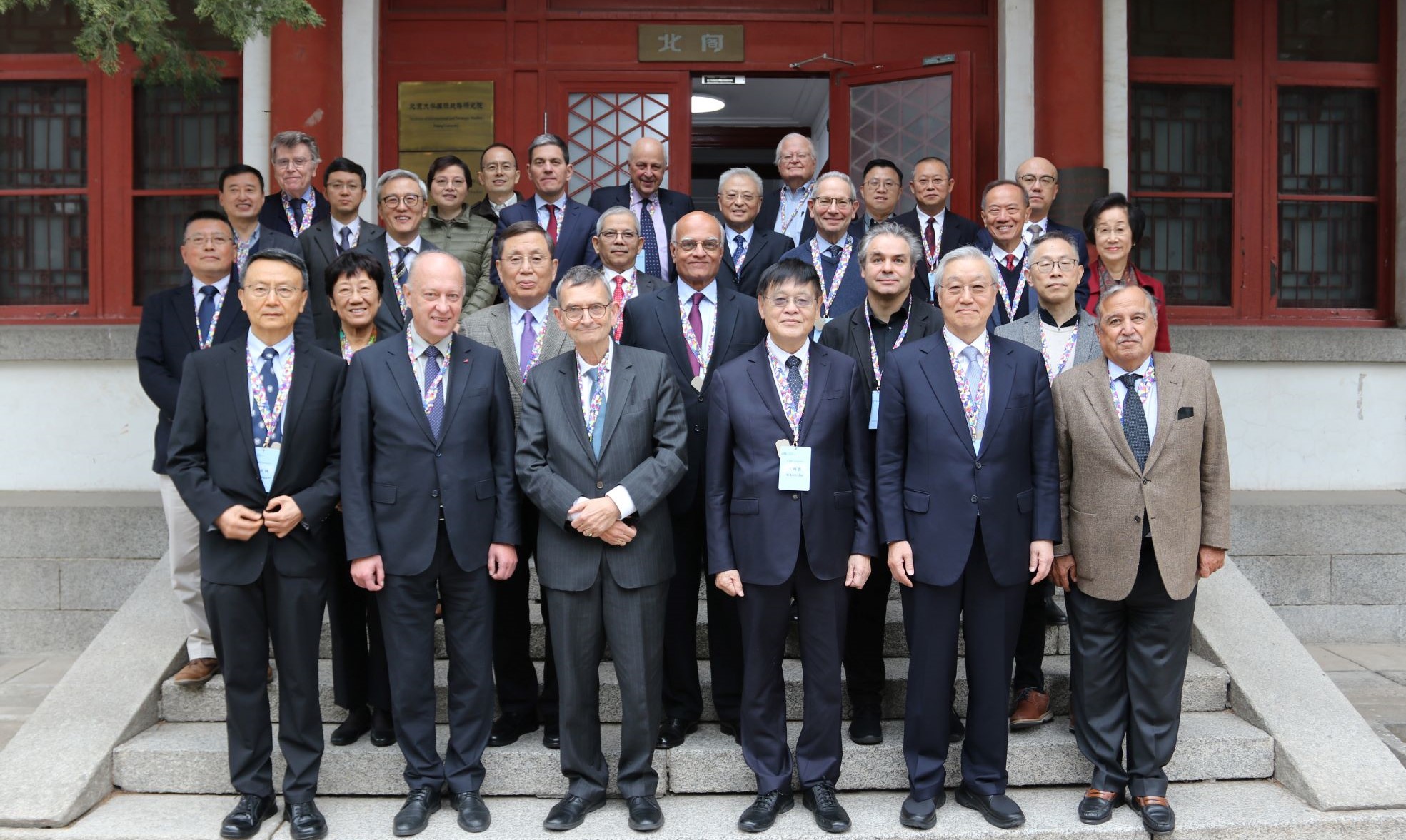The 11th North Pavilion Dialogue, hosted by the Institute of International and Strategic Studies (IISS) at Peking University, was held on campus from October 23 to 24, 2025. As a supporting organization of this year’s conference, the China-U.S. Exchange Foundation (CUSEF) was represented by its Vice President, Mr. Huang Dihzhong.
Centered on the theme “Global Trends and the Destiny of U.S. Hegemony,” the conference brought together former political leaders and distinguished experts from China and abroad. With their extensive political experience and strategic insights, participants engaged in thoughtful discussions on the evolving international landscape and the future trajectory of China-U.S. relations.
The North Pavilion Dialogue serves as a valuable platform by providing high-quality policy advice on China’s foreign affairs and for fostering closer partnerships between China and leading think tanks and academic institutions around the world. The discussions explored major issues such as the transformation of U.S. domestic politics, the future of China-U.S. relations, U.S.-Europe coordination, and shifting dynamics in the Middle East, aiming to promote dialogue through informal exchanges.
Among the 16 international guests were Lionel Barber, British author, media commentator, and former editor of the Financial Times; Robert D. Blackwill, Senior Fellow at the Belfer Center for Science and International Affairs at Harvard Kennedy School and former U.S. Ambassador to India; and Nabil Fahmy, Dean Emeritus of the School of Global Affairs and Public Policy at the American University in Cairo and former Foreign Minister of Egypt. Also in attendance were Kim Sung-Hwan, President of the Taejae Future Consensus Institute and former Minister of Foreign Affairs and Trade of South Korea; Andrey Kortunov, Academic Director of the Russian International Affairs Council; and George Yeo, former Minister for Foreign Affairs of Singapore.
On the Chinese side, the conference featured several prominent figures who have played key roles in shaping China’s foreign policy. These included Cui Tiankai, former Chinese Ambassador to the United States and former Deputy Director of the Office of the Central Foreign Affairs Commission; Chen Xiaogong, retired Lieutenant General of the People’s Liberation Army Air Force; Yao Yunzhu, retired Major General and former Director of the China-U.S. Defense Relations Center at the PLA Academy of Military Sciences; and Chen Dongxiao, President of the Shanghai Institutes for International Studies and Vice President of the China National Association of International Relations.


The session held on October 24 was co-moderated by Professor Yu Tiejun, Director of the Institute of International and Strategic Studies at Peking University, and Professor Wang Yizhou, Director of the Institute of Area Studies at Nanjing University.
